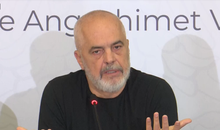
 Flash News
Flash News
Rama's ultimatum: On Monday, all heads of administrative units must be dismissed
Fires in the country, 4 fires still active, what is the situation?
Rama targets Shkodra prosecutor again: Gjeli wrote philosophical essay with innocence of illegal construction
Wanted for theft, 26-year-old arrested in Durrës
Released on bail, Salianji appears before the Probation Service
Elections in Kosovo/ Servers and equipment from Germany, Rohde: To ensure a secure electoral process
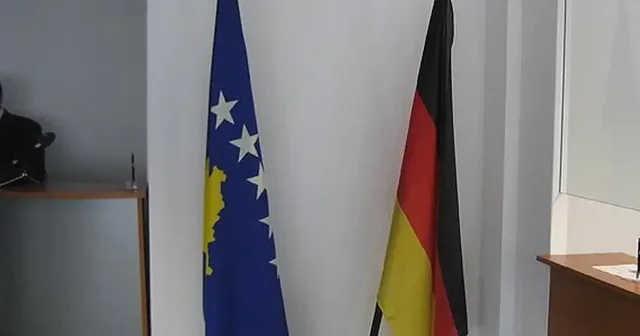
There are still three days left before the parliamentary elections in Kosovo. The Central Election Commission (CEC) has announced that all preparations have been made for the electoral process to take place on Sunday, 09.02. 28 political forces are competing in these elections, of which 20 political parties, five coalitions, two citizen lists and one independent candidate. About two million voters have the right to vote, of which 105 thousand are citizens voting outside Kosovo. The CEC announced that ballots have already been printed with a total number of 1,752,650 ballots, a number smaller than the number of voters.
Why are there fewer ballots than voters?
The smaller number of ballots is related to the fact that in all previous elections, the turnout of citizens in the elections was not more than 50% of eligible voters. "According to the CEC decision, 1,752,650 ballots were printed, of which 1,664,100 for voting at regular polling stations, 28,450 for conditional voting; 38,650 for voting by persons with special needs and as reserve ballots; and 21,450 for voting at diplomatic missions," the CEC statement said.
Based on the Voter List certified by the Central Election Commission, the number of Kosovo citizens with the right to vote is 2,075,868 voters, of which 1,970,944 voters are voters belonging to the Voter List within Kosovo and 104,924 voters are part of the Voter List outside Kosovo. "Therefore, according to the CEC decision, 323,218 or 15.57% ballots will be less than the number of voters. This is a practice followed by the CEC in past election processes," said CEC spokesperson Valmir Elezi.
Rohde: Ensure a secure electoral process
The Central Election Commission received a donation of servers and equipment from Germany, supporting equipment that will help with the Counting and Results Center. The German Ambassador to Kosovo, Jörn Rohde, said that this donation ensures a secure electoral process, strengthens the election administration bodies by increasing public trust. Rohde expressed his belief that Sunday’s electoral process will take place without difficulties.
"Democracy and free elections are the foundation of a prosperous society. We want to strengthen our future and the democracy that ensures individual freedom for all of us. Since the declaration of independence, Kosovo has made great progress in its rise and democratization. Therefore, the digitalization of the electoral process will be key to this progress. This donation of more than 140 thousand euros ensures that these current and future elections will be safe in Kosovo," said Ambassador Rohde. He expressed his 100% conviction that on Sunday Kosovo will have elections without difficulties.
Increasing electoral standards in Kosovo
The CEC appreciates the German donation. The Chairman of the CEC, Kreshnik Radoniqi, said that "this support from the German state will affect the improvement of the infrastructure and the advancement of electoral standards in Kosovo". "The receipt of these modern servers marks further development of the CEC infrastructure and is a continuation of the process of digitalizing electoral operations. This support is valuable and will affect the improvement of our infrastructure and the advancement of electoral standards in Kosovo. Also, considering the role of the CEC, this donation is a major investment in the integrity of the electoral process and in the trust of citizens in the electoral process" , said Radoniqi, who together with the German Ambassador Jörn Rohde, encouraged citizens with the right to vote to exercise their constitutional right and go out to vote on Sunday.
The election campaign is at its peak.
Although there are only three days left until the elections, political entities are continuing their election campaign, where there is no shortage of inflammatory and hate speech among political opponents. The network of non-governmental organizations that monitors the election process, DnV, says that "the use of inflammatory and hate speech by political parties has continued", and for this reason the number of fines against them by the Panel for Complaints and Submissions ECAP has also increased. The figure of fines against political parties has already reached around half a million euros. "The number of activities where offensive, inflammatory or hate speech was used has almost doubled", according to DnV.
The Agency for Information and Privacy (AIP) has also urged political entities to protect citizens' personal data during the election campaign. It requires political entities to "implement legal obligations to protect citizens' personal data by not using and exposing personal data in communications via electronic mail (e-mail), text messages (SMS) and telephone calls, without prior consent ."/ DW
Latest news


Fires in the country, 4 fires still active, what is the situation?
2025-07-11 10:56:23
Government irony: Rama strips Dredha of power, then demands law and order
2025-07-11 10:49:10
German media: Vlora Airport 'kills' one of Europe's largest wetlands!
2025-07-11 10:37:46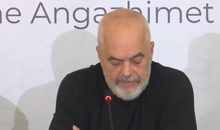
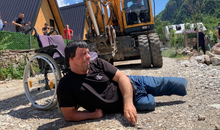
Amid the Alps in Theth, the law punishes even those who try to respect it
2025-07-11 10:14:16
Wanted for theft, 26-year-old arrested in Durrës
2025-07-11 10:03:29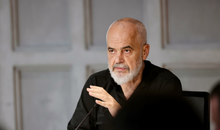
After the dismissals, Rama gathers the mayors in Durrës
2025-07-11 09:42:29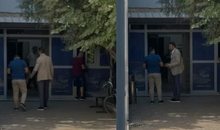
Released on bail, Salianji appears before the Probation Service
2025-07-11 09:34:28
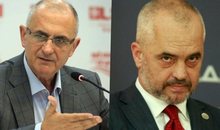
Haxhi Qamil Rama and the directors of the Municipalities!
2025-07-11 09:21:35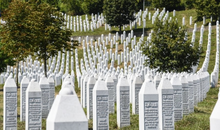
30 years since the Srebrenica massacre in Bosnia and Herzegovina
2025-07-11 09:10:52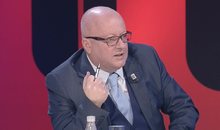

From rhetoric to brandy, POLITICO: 9 things Nigel Farage can do in Albania
2025-07-11 08:53:35
Trump announces 35% tariffs on Canadian goods
2025-07-11 08:39:29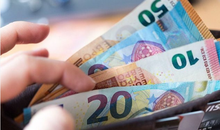
Foreign exchange, how much foreign currencies are sold and bought today
2025-07-11 08:24:25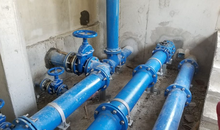

Horoscope, what do the stars have in store for you today?
2025-07-11 07:59:39
Sun and high temperatures, weather forecast
2025-07-11 07:41:09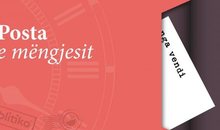
Morning Post/ In 2 lines: What mattered yesterday in Albania
2025-07-11 07:20:14
Zhupa: In Theth, some Austrian strategic investors want the empty area
2025-07-10 22:57:08
Malltezi: SPAK admits, we are in a process that began with Balla's false report
2025-07-10 22:34:16

Si të çliroheni nga bllokimet emocionale me anë të ushtrimeve
2025-07-10 21:57:24

Lala: Veliaj wanted to return as mayor
2025-07-10 21:40:46

VIDEO/ Brawl in Bolivian parliament, deputies physically clash
2025-07-10 21:20:30


Albania experienced one of the longest heat waves of the last decade
2025-07-10 21:01:09

The Government approves new procedures for declaring residence in e-Albania
2025-07-10 20:39:32

Koka: Northerners will not forget Edi Rama's racist operation in Theth
2025-07-10 20:18:24
The 3 zodiac signs that will be most affected by the 'Full Moon' of July 10
2025-07-10 20:04:49
New director of the National Center of Cinematography appointed
2025-07-10 19:51:12
Korça/ 40-year-old man jumps from fifth floor balcony, in critical condition
2025-07-10 19:40:19
'Tired Woman'/ The Syndrome That Affects Thousands of Women Every Day
2025-07-10 19:34:02
Jane Birkin's original Hermès bag sells for $10 million
2025-07-10 19:26:22

Britain-Ukraine agreement signed for 5,000 Thales missiles
2025-07-10 19:00:25
Fire in Zvërnec, flames endanger two hotels
2025-07-10 18:57:19
Croatia restores compulsory military service
2025-07-10 18:39:01
Spahia: The great truth of the strong accusation of the residents of Theth
2025-07-10 18:35:07


The Supreme Court left him in prison, Meta addresses the 'Constitution'
2025-07-10 17:57:21
New punishment with 'new' regulations
2025-07-10 17:54:46
EU translator fired over fears for Zelenskyy's safety
2025-07-10 17:45:37
'You are a policeman, but not God, take my soul', protest for Agon Zejnullahu
2025-07-10 17:41:21


Video/ Rama repeats the scenario, kneels before Meloni again
2025-07-10 16:56:31
He set fire to a plot of olive trees, 50-year-old man arrested in Shijak
2025-07-10 16:46:19

Rubio: US and Russia have exchanged new ideas for Ukraine peace talks
2025-07-10 16:36:20
Death of 27-year-old, Lipjan Police Commander Resigns
2025-07-10 16:21:28
Video/ An apartment burns in Tirana near the New Bazaar
2025-07-10 16:09:36


Jensila lights up the internet with her birthday greetings to Ledri
2025-07-10 15:42:08
They're full of pesticides! List of 12 products we need to be careful of
2025-07-10 15:31:04

Worker falls from scaffolding in Shëngjin, urgently sent to Trauma
2025-07-10 15:11:03
Malltezi: Within one day they seized my accounts, properties and shares
2025-07-10 15:01:23
EU: Israel has agreed to more aid to Gaza
2025-07-10 14:55:19
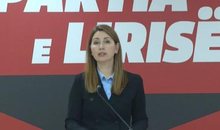

Murder of Reni Dobra, 23-year-old's vehicle pulled from the water
2025-07-10 14:29:23
Trump's tariffs on Brazil raise coffee prices
2025-07-10 14:16:07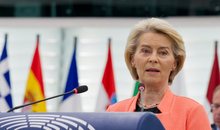
Ursula von der Leyen survives no-confidence vote
2025-07-10 14:04:27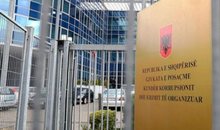


Fire in Lezha, flames near electrical substation
2025-07-10 13:32:24
Residents clash with police in Theth, a woman faints
2025-07-10 13:24:38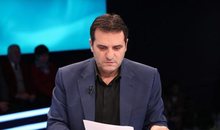
"Rama and Xanun"
2025-07-10 13:15:46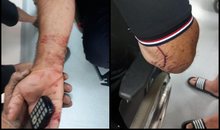

Zodiac signs most likely to get divorced in July 2025
2025-07-10 12:45:51
A scapegoat for an illegitimate Republic
2025-07-10 12:35:02
"He has devastated his own nation"/ Berisha: Rama imprisons his opponents!
2025-07-10 12:26:54

Albanian man injured with knife in Italy
2025-07-10 12:08:55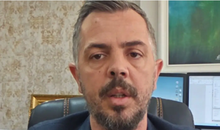
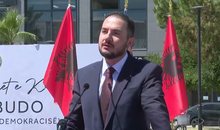


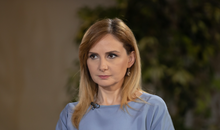

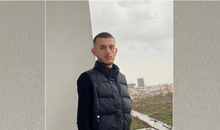
23-year-old in Mat drowned with rope, 4 suspects are being held
2025-07-10 10:58:53
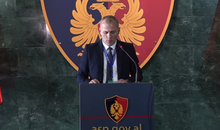
After the dismissals, the new director of the Shkodra Police is appointed
2025-07-10 10:30:10
BIRN: Rama's action for public spaces, a repeated spectacle
2025-07-10 10:29:11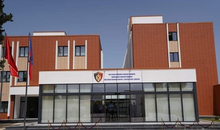
Action in Theth, Shkodra Police leaders dismissed
2025-07-10 10:16:28
Fatal accident on the Tirana-Durres highway
2025-07-10 10:01:58
The incinerator does not exist, but the government continues to increase funds
2025-07-10 09:51:45
Albania is aging at a rapid pace! 30% of the population is over 60 years old
2025-07-10 09:46:23
End of an era, Modric says 'goodbye' to Real Madrid
2025-07-10 09:36:09
Mount Dukat has been on fire for 6 days, residents request air intervention
2025-07-10 09:27:24
